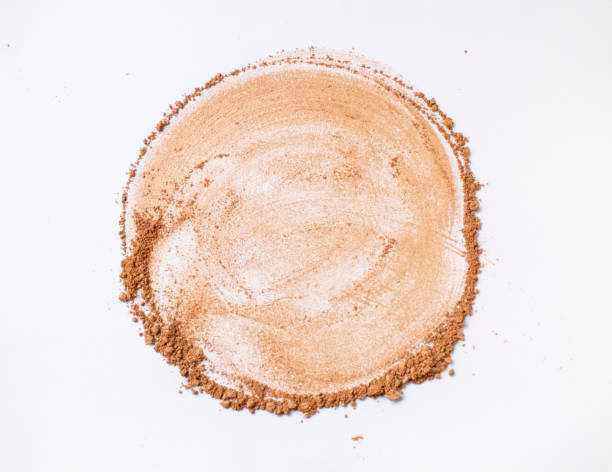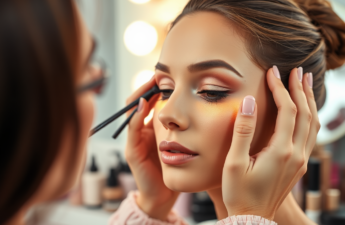The quest for the perfect base makeup often leaves us pondering between powder and liquid foundations. Each type has its own set of qualities that cater to different skin types and desired finishes. Choosing between powder and liquid foundation should take into account factors such as your skin type, the level of coverage you’re aiming for, and the longevity you expect from your makeup. If you prefer a lightweight, matte finish, powder might be the way to go. On the other hand, for a hydrating, dewy glow, liquid foundations can be your best friend. Below, we dive into details to help you decide which foundation should be the staple of your makeup routine.
Powder Foundation: Simplicity and Matte Finish
Powder foundations are beloved for their ease of application and their matte effect, making them ideal for those with oily skin. They offer a range of coverages, from light to full, and can be built up as needed without looking too heavy or cakey. Here’s a glance at what powder foundations have to offer:
- Shine-Free Finish: Powder absorbs excess oil, maintaining a matte finish throughout the day.
- Convenience: They are easy to touch up on the go, thanks to their compact packaging.
- Simplicity: Powder foundations can be applied quickly with a brush or sponge.
- Suitable for Acne-Prone Skin: They often contain less oil, reducing the risk of clogged pores.
- Sensitivity Friendly: Many are free from preservatives and fragrances, ideal for sensitive skin.
Despite their benefits, powder foundations can emphasize dry patches and fine lines in drier skin types, so it’s essential to ensure your skin is well-moisturized before application. Also, they may not offer the longevity of a liquid in certain environments or for those looking for all-day wear.
Liquid Foundation: Versatility and Luminosity
Liquid foundations are favored for their versatility and ability to provide a more luminous and natural-looking finish. They can be formulated for a wide range of skin types, from dry to oily, with ingredients that cater to specialized needs like hydration or oil control. Consider these aspects of liquid foundations:
- Hydrating Properties: Ideal for those with dry or mature skin, as it can provide a moisture boost.
- Full Coverage: Excellent for covering up blemishes or uneven skin tone with a more consistent application.
- Dewy Finish: Many formulations give a natural glow that can make skin look healthy and radiant.
- Lasting Power: With the right primer and setting technique, they can last all day without slipping or fading.
While liquid foundation can provide a stunning finish, it may require a bit of skill to apply it evenly. Furthermore, those with very oily skin might find it wears off more quickly unless it is set with powder. It’s also worth mentioning that liquid can be more prone to transferring onto clothing or other surfaces without proper setting.
The Middle Ground: Cream-to-Powder Formulas
If you can’t decide between powder and liquid, cream-to-powder foundations present a unique compromise. These foundations glide on as a cream but settle into a powder finish, offering the benefits of both worlds. They tend to provide medium to full coverage and can be good for combination skin, although those with very dry or oily skin might still prefer to stick with the traditional powder or liquid formulations for their specific concerns.

Addressing Skin Type and Conditions
An essential aspect of choosing your foundation lies in understanding your skin type. Oily or acne-prone skin generally benefits from powder foundation’s oil-absorbing properties. Dry or mature skin, which may already have issues with flakiness or fine lines, tends to respond better to the hydrating quality of liquid foundations. If you have sensitive skin, look for hypoallergenic and non-comedogenic options in both categories to avoid irritation.
- Determine your skin type: oily, combination, dry, sensitive, or mature.
- Consider the finish you desire: matte, natural, or dewy.
- Think about the coverage level needed—a spot concealing, medium, or a full-coverage foundation.
- Factor in any skin conditions, like acne or eczema, and choose a foundation that won’t exacerbate them.
- Don’t overlook the importance of a proper skincare routine to prepare your skin for any foundation type.
Your Lifestyle and Environmental Factors
Your daily activities and the environment you live in should also influence your foundation choice. In humid climates or if you have an active lifestyle that leads to sweating, a mattifying powder foundation might hold up better. Conversely, those in drier climates or working in air-conditioned offices might appreciate the additional moisture that liquid foundations can offer.
Consider these factors when choosing the right foundation:
- Your daily activity level and the likelihood of sweating.
- The humidity or dryness of your local climate.
- Exposure to air conditioning or central heating.
- The need for quick touch-ups throughout the day.
- Your daily makeup routine’s complexity and the time you’ve allotted for it.
Conclusion
Selecting the perfect foundation, be it powder or liquid, ultimately hinges on your skin’s unique needs, your lifestyle, and the kind of finish you desire. Powder foundations provide ease, control shine, and are great for skin prone to oiliness and breakouts. Liquid foundations offer a versatile range of coverage with a natural to dewy finish, suitable for normal to dry skin types. Remember, the ideal choice might vary depending on the season or even daily skin condition. Sampling different formats and formulas can be the most effective way to determine what works best for you. So, when it comes to powder vs. liquid foundation, know that the choice is personal, and the best fit is out there waiting for you.
FAQs
- Can I use both powder and liquid foundation together? Yes, you can use them together to customize your look. Many people apply a liquid foundation for overall coverage and finish with a powder to set the foundation and control shine.
- How do I know if a foundation is right for my skin type? Check the foundation’s properties and ingredients. Look for terms like “oil-free” or “mattifying” for oily skin, and “hydrating” or “for dry skin” if you have dry skin. Many products will explicitly state which skin type they are designed for.
- Is powder foundation always matte? Most powder foundations have a matte finish, but some have luminous particles to provide a subtle glow. They won’t be as dewy as most liquid foundations, though.
- Is it bad to wear foundation every day? It’s not inherently bad to wear foundation daily, as long as you choose ones that suit your skin type, apply them properly, and thoroughly remove your makeup at the end of the day to prevent pore clogging and skin irritation.
- How should I apply liquid and powder foundation for the best results? Liquid foundation can be applied with a brush, sponge, or fingers—start with a small amount and blend outwards. Powder foundation is best applied with a fluffy brush to distribute it evenly; you can use a dense brush or sponge for more coverage.



